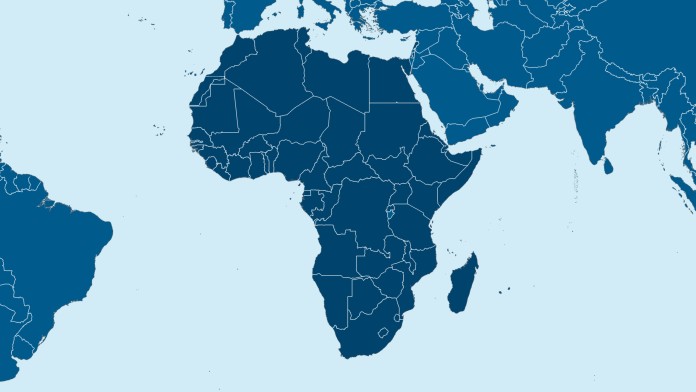Tip: Activate javascript to be able to use all functions of our website

The African Union (AU), which emerged from the Organisation for African Unity (OAU) in 2002, is the union of all African countries. Based in the Ethiopian capital Addis Ababa, it promotes the political and economic integration of African countries. In its Agenda 2063, the member states designed the vision of a successful Africa with inclusive growth and sustainable development, peace and security. In recent years, the AU has gained in importance; it will be part of the G20 in the future.
Many African countries share development challenges that are similar to each other. The AU focuses on overcoming these as a community through supra-regional projects. These challenges include the lack of education, inadequate infrastructure and access to energy. Qualified specialists with practical skills are urgently needed on the continent. In many African countries, this shortage of skilled workers is slowing down development. In addition, there is a lack of infrastructure, from roads to schools and health facilities. Financing opportunities are often in short supply, especially for large infrastructure projects. In addition, electricity shortages affect the economy and society in almost all African countries, even though there is great potential for renewable energy sources.
KfW Development Bank supports the AU on behalf of the German Federal Government in the following areas:
On behalf of the Federal Ministry for Economic Cooperation and Development (BMZ), KfW is supporting the AU and its implementing organisation AUDA-NEPAD in setting up the "Skills Initiative for Africa", which is committed to innovative and practice-oriented vocational training. It also supports the Pan-African University by establishing the Centre for Water and Energy Management (PAUWES) at the Tlemcen site in Algeria.
Together with other international donors, KfW provides funds for the NEPAD-IPPF (Infrastructure Project Preparation Facility), which carries out feasibility studies, so that regional projects can be financed in areas such as electricity and water supply, transport and information and communication technologies.
Using funds from the Federal Ministry for Economic Cooperation and Development (BMZ), the EU and the United Kingdom, KfW finances a regional facility under the auspices of the African Union to help develop geothermal energy in eastern Africa.
On behalf of the BMZ, KfW is strengthening the AU's reform agenda by financing activities of the AU Commission to implement this agenda.
KfW is supporting the AU on its path to achieving more inclusive and sustainable growth on the continent. It promotes the establishment of the African Continental Free Trade Area (AfCFTA) and the economic integration of Africa.
The AU has set itself the goal of producing more vaccines locally. KfW is supporting this endeavour with the "prep4vac" grant facility.
KfW Group
KfW Development Bank
Share page
To share the content of this page with your network, click on one of the icons below.
Note on data protection: When you share content, your personal data is transferred to the selected network.
Data protection
Alternatively, you can also copy the short link: https://www.kfw-entwicklungsbank.de/s/enzBY5Ym
Copy link Link copied